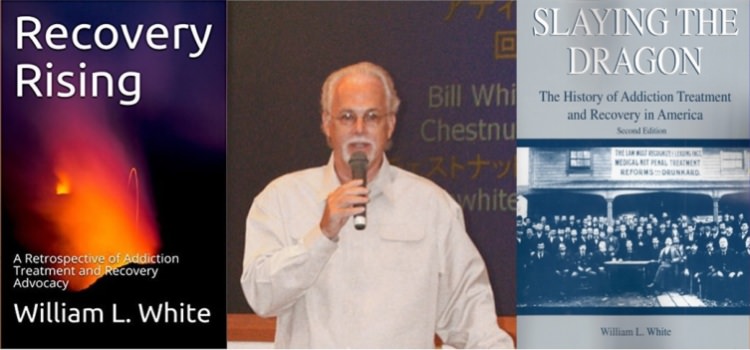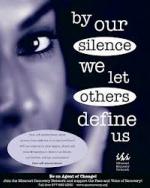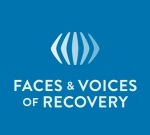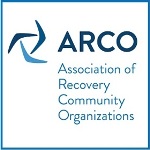Personal Privacy and Public Recovery Advocacy

By Bill White, Bill Stauffer and Danielle Tarino
Posted on the website, William White Papers, on November 19, 2020
A central strategy of the new recovery movement is sharing our stories in public and professional venues to change public perceptions and public policies related to addiction and recovery.
Drawing from earlier social movements, we learned that “contact strategies” – increasing personal contact between marginalized and mainstream populations – is one of the most effective means of reducing stigma and discrimination and expanding opportunities for full community participation.
Public attitudes toward those recovering from alcohol and other drug problems become more positive when members of the public have positive exposure to people living in long-term recovery with whom they can identify.
We also learned that there were limitations to this approach of public recovery storytelling. Changing personal attitudes of those exposed to our stories left in place much of the institutional machinery (e.g., laws, policies, and historical practices) that negatively affected individuals and families experiencing alcohol and other drug problems. Twenty years into the new recovery advocacy movement, discrimination against us remains pervasive. We must remain vigilant to prevent appropriation of our stories by others to support unrelated agendas. When this happens, we experience further marginalization.
People in recovery face discriminatory barriers in housing, employment, education, professional licensure, health care, and numerous arenas of public participation (such as voting and holding public office). Laws and regulations intended to protect us from discrimination remain unenforced. Addiction treatment remains of uneven quality, often lacking in long-term recovery orientation, and limited in its accessibility and affordability. Too many communities lack long-term recovery support services. And people in recovery continue to be excluded from meaningful representation within alcohol and drug and criminal justice policy discussions and decisions.
It is in this context that we must be clear about what our public recovery storytelling can and cannot achieve, and relatedly, who precisely is responsible for eliminating entrenched policies and practices that have such a direct impact on our lives.
 There is a paradox within our anti-stigma efforts. We must challenge oppressive barriers to recovery and full participation in community life. As Frederick Douglass so clearly and eloquently stated, “Power concedes nothing without a demand.” Historical inertia and personal and institutional self-interests sustain structures of oppression until they are challenged. Who will pose such a challenge if not people in recovery?
There is a paradox within our anti-stigma efforts. We must challenge oppressive barriers to recovery and full participation in community life. As Frederick Douglass so clearly and eloquently stated, “Power concedes nothing without a demand.” Historical inertia and personal and institutional self-interests sustain structures of oppression until they are challenged. Who will pose such a challenge if not people in recovery?
Yet the ultimate responsibility for dismantling discriminatory practices rests upon the shoulders of the systems within which such oppressive machinery continues to operate. The responsibility to eliminate discrimination rests with those who discriminate. By itself, telling the perfect recovery story will not end discriminatory practices.
So where does recovery storytelling fit into all this? Our stories are a means of humanizing addiction and recovery – a means of challenging the myths, misconceptions, and caricatures that have let others objectify and isolate us. Our stories are an invitation for people to reconsider the sources of and solutions to alcohol and other drug problems. Our stories are a means of building relationships that embrace us within the human family – as people who share the dreams and aspirations of others.
Our stories, directly or indirectly, also constitute Douglass’ demand to change the structures that have prevented an embrace of our humanity and rendered us people to be feared, shunned, or punished.
This involves far more than changing people’s perceptions, attitudes, and behaviors toward those with lived experience of addiction and recovery. It involves identifying and eliminating the precise mechanisms (e.g., policies and practices) through which social shunning and discrimination have been institutionalized.
This is not to suggest that people in recovery have no role to play in this change process nor that we should passively embrace a victim status in the face of such systemic challenges. We can take responsibility for our own personal and family recovery, make amends to those we have harmed, and reach out to others still suffering. We can participate in recovery-focused research (to create a science of recovery that can challenge recovery misconceptions), participate in protests and advocacy efforts, offer our recovery stories in public and professional educational venues, and represent our lived experience within policy-making settings. Such actions have contributed to numerous positive changes.
Our stories possess immense power as long as we recognize our stories alone will not create recovery-friendly social institutions or recovery-inclusive communities. We must not allow our stories to stand as superficial window-dressings while discrimination remains pervasive, even among some of the very groups and institutions who on the surface support our storytelling. Our stories must support specific calls for institutional change. We must hold individuals and institutions that discriminate accountable until they eliminate such conditions.
How we craft and communicate our stories for public/professional consumption is an important element of this process of social change. Recovery advocacy organizations have a responsibility to prepare and support the vanguard of individuals who heed the call of this public story-sharing ministry. This includes building a community ethic that protects those who possess the bravery and privilege of sharing their recovery stories in public forums. Collecting our stories without meaningful dialogue about how our stories will be used and the protections we will be afforded is unacceptable.
This is the first in a continuing series of blogs on personal privacy and public recovery advocacy. We hope it will set recovery storytelling within a larger context. The remaining blogs will explore the risks of public recovery storytelling, the ethics of public recovery story sharing, and suggest guidelines on protecting personal privacy and safety within the context of public recovery storytelling. The impetus for this series comes from our knowledge of individuals who have experienced unanticipated harm related to their advocacy efforts.

William White has a Master’s degree in Addiction Studies and has worked in outreach, clinical research and teaching roles in the addictions field since 1969. Bill has authored or co-authored more than 400 articles and 21 books, including Slaying the Dragon – The History of Addiction Treatment and Recovery in America and, more recently, Recovery Rising.
Bill has served as a historian and thought leader of the U.S. recovery advocacy movement since the late 1990s and has served as a volunteer consultant to Faces and Voices of Recovery and local recovery community organizations since the early 2000s.
And here is a listing Bill provided of three recovery advocacy organizations:
 Faces and Voices of Recovery is committed to eliminating discrimination against people in recovery and shaping public policy and educating people by bringing recovery into the consciousness of Americans. Faces and Voices of Recovery envisions a world in which recovery from addiction is a common, celebrated reality – a world where individuals will not experience shame when seeking help.
Faces and Voices of Recovery is committed to eliminating discrimination against people in recovery and shaping public policy and educating people by bringing recovery into the consciousness of Americans. Faces and Voices of Recovery envisions a world in which recovery from addiction is a common, celebrated reality – a world where individuals will not experience shame when seeking help.
 The Association of Recovery Community Organizations (ARCO) unites and supports a growing network of Recovery Community Organizations (ROCs). ARCO links them and their leaders with local and national allies. There are now 100 of these within ARCO and their goals include educating the public about the reality of recovery, advocating on behalf of the recovery community, and delivering recovery support services.
The Association of Recovery Community Organizations (ARCO) unites and supports a growing network of Recovery Community Organizations (ROCs). ARCO links them and their leaders with local and national allies. There are now 100 of these within ARCO and their goals include educating the public about the reality of recovery, advocating on behalf of the recovery community, and delivering recovery support services.

























I hope that the remaining article(s) cover the AA concept of anonymity and how that may relate to authors who use their full names in books, articles, and other public forums. Is the tradition of anonymity antiquated? Or does it need some clarification and alteration in light of our modern context?
The tradition of anonymity doesn’t understand the Internet and social media. Confidentiality is important to protect what we say in meetings, and our membership in AA must be held in confidence by fellow members. That is incredibly important. Anonymity is about public relations.
I have found the concept of anonymity to be an important element is my program of sobriety.
Thanks for the article. It reinforces how far AA has to go to just catch up with recovery in 2020. The AA position on breaking down the societal barriers of stigma and discrimination is to not have an opinion and stand on the sidelines and get left behind. We treat it as if it’s an outside issue. Sharing your personal story outside the rooms seems to still be very much a taboo in the eyes of traditional AA. I’ve sat in workshops where the message was if you let it be known you go to AA and you relapse you’re bringing shame on to AA. If you use your full name in talking to outside parties, you’re self promoting. Like much in AA, it’s outreach is still stuck in the past. A major project this past year in two of our local districts was to donate 20 copies of our lovely eighty year old book to CAMH, the Centre for Addiction and Mental Health.
Personal anonymity to me is a matter of personal choice. I’m grateful to individuals who have the courage to speak up publicly about their addictions, underlying causes, and personal solutions. There’s a sizable knowledge base on recovery that AA is failing to tap into. It’s time to carry the message to the suffering Big Book thumper.
The William White Papers have more to say today (posted November 27) about unintended consequences of publicly revealing our story. It’s important that we do and it’s important to be careful. The suggestion is made to make the recovery movement the thrust of the story, more than an individual ‘victory’ over addiction.
For many the anonymity elements have proven to be essential for recovery. That certainly appears to be mostly true in AA’s earlier years due the negative connotation associated with being an alcoholic – even one in recovery.
I stopped being anonymous many years ago both professionally and in my personal life because those who showed no public shame for being what we are served me in getting and staying sober. The 12th step is part of my thought process. I do not nor will not live in the shadows.
Anonymity in the 21st Century | AA Agnostica
I wonder if this was submitted to The Grapevine? As far as I can tell, its potential audience is far broader than just us recovering alcoholics who identify as atheist or agnostic. Further, I am concerned that we come to be regarded as the self-appointed advocates for radical change in other AA traditions (lower case intended) and philosophy. Frankly, I’m still striving for a lot more acceptance in my own groups of the idea of recovery in AA without god. I recognize that one largely unspoken thesis of this article is exactly that but for me it goes off-track.